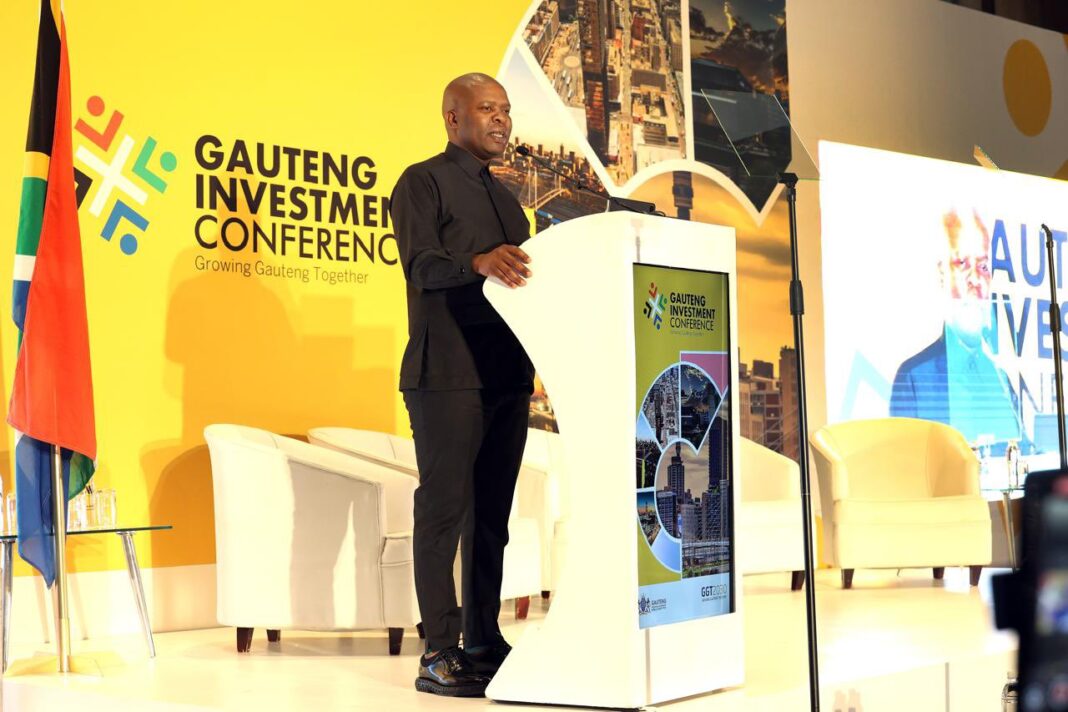By Thapelo Molefe
Gauteng’s ambitious drive to attract investment has yielded results, with the province surpassing its target by securing R312.5 billion in investment pledges at the inaugural Gauteng Investment Conference.
The initial goal was R300 billion.
Addressing the conference virtually on Thursday, Deputy President Paul Mashatile said economic growth must not leave anyone behind.
He said that investment alone was not enough, and it must translate into meaningful job creation and economic transformation.
“Our challenge is not just to attract investment, but to make sure that it leads to meaningful job creation and transformation,” Mashatile said.
“We must dismantle barriers that keep small businesses and historically disadvantaged communities on the sidelines of economic growth.”
Mashatile called on investors to actively partner with the government in ensuring that township enterprises, women-led businesses and young entrepreneurs benefited from Gauteng’s economic expansion.
He warned against a scenario where investments simply enriched a select few while the majority remained excluded from economic progress.
Gauteng finance and economic development MEC Lebogang Maile told the diverse audience of diplomats, business leaders and government officials, that while attending the World Economic Forum in Davos earlier this year, the province had positioned itself as a global investment destination, focusing on economic resilience, digital transformation and inclusive growth.
“We have engaged with various economic sectors to align their programmes with our provincial priorities. Our economic development plan is rooted in industrialisation, skills development and SMME support,” said Maile.
“This is not just about numbers. It is about changing lives and ensuring that previously marginalised communities have a seat at the economic table.”
Maile also highlighted the role of infrastructure investment in driving economic growth.
“We are not just talking about investment; we are laying the groundwork for sustainable, long-term growth. That means improving roads, modernising our rail networks and ensuring reliable energy supply. Investors need certainty, and we are providing it.”
Notable investment sources include R179 billion from South Africa, R51.4 billion from the United States, R30 billion from the United Kingdom, R2 billion from China (with additional projects in the pipeline), and R34.7 billion from multinational corporations.
Investment pledges span 60 projects across 15 sectors, including R22.7 billion for agriculture, R15.3 billion for manufacturing and R39.7 billion for transport and logistics.
The MEC reaffirmed the provincial government’s pledge to create a conducive environment for business growth, curb corruption and streamline business processes.
He emphasised that the government was committed to making Gauteng a model province for investment-friendly reforms.
“We pledge to implement reforms that enhance the ease of doing business, invest in infrastructure and create a predictable regulatory environment. We are committed to public-private partnerships that drive sustainable growth and job creation,” he stated.
Maile also made it clear that accountability would be central to the province’s investment strategy.
“We are not here for empty promises. We expect investors to follow through, and we will ensure that these commitments translate into real, on-the-ground projects that benefit our communities.”
Gauteng contributes 33.2% of South Africa’s GDP and about 7% of Africa’s total GDP.
The Northern Corridor in Tshwane has been positioned as a hub for automotive manufacturing and knowledge-based industries, while the Central Corridor in Johannesburg is the financial and technological nucleus of Africa.
The Eastern Corridor in Ekurhuleni hosts the continent’s first aerotropolis and major logistics hubs, and the Southern Corridor in Sedibeng is set to become an agricultural and renewable energy powerhouse.
The Western Corridor in West Rand is focused on mining, tourism, and agro-processing.
Maile said these corridors were designed to decentralise economic activity, ensuring that growth reached all corners of the province.
He said there was also a focus on supporting SMMEs and the township economy through initiatives like the Township Industrial Parks Programme that would integrate small businesses into the formal economy.
INSIDE POLITICS

